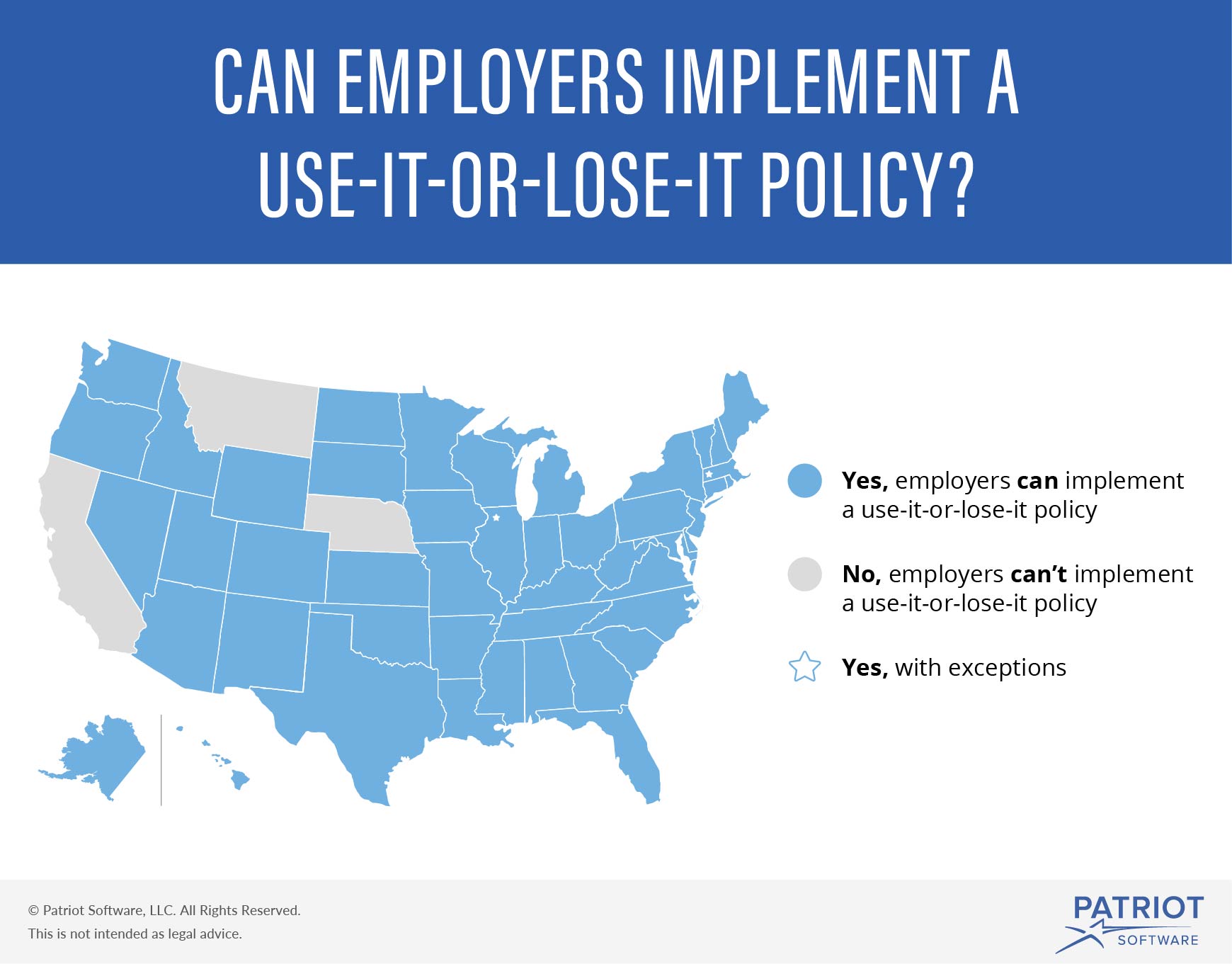Understanding PTO Laws by State

What is PTO?
PTO, or paid time off, is a benefit provided by employers to employees to take paid time off from work for various reasons, such as vacation, sick leave or personal time. PTO is usually accrued based on the length of time an employee has been with the company and can be used at the employee's discretion, subject to the employer's approval. PTO benefits can vary from state to state, and it's essential to understand the laws in your state to ensure you are receiving the benefits you are entitled to.
PTO Laws by State
Each state has its own set of laws regarding PTO. Some states require employers to provide PTO benefits, while others do not. Below are some examples of PTO laws by state:
California
In California, employers are required to provide paid sick leave benefits to their employees. Full-time employees can accrue up to 24 hours of paid sick leave per year, while part-time employees can accrue up to one hour of paid sick leave for every 30 hours worked.
Florida
Florida does not have any state laws requiring employers to provide PTO benefits to their employees.
New York
In New York, employers are required to provide paid sick leave benefits to their employees. Full-time employees can accrue up to 40 hours of paid sick leave per year, while part-time employees can accrue up to one hour of paid sick leave for every 30 hours worked.
How to Calculate PTO
PTO is usually calculated based on the length of time an employee has been with the company. For example, an employee may accrue two weeks of PTO for every year they have been with the company. Some employers may also have a maximum number of PTO hours an employee can accrue, after which they will stop accruing PTO until they use some of their accrued time off.
Advantages
- Flexibility: PTO allows employees to take time off for various reasons, such as vacation, sick leave or personal time, giving them more flexibility.
- Increased Productivity: Employees who take regular breaks and time off tend to be more productive and motivated when they return to work.
- Improved Employee Retention: Providing PTO benefits can help employers retain their employees and attract new talent.
Disadvantages
- Cost: Providing PTO benefits can be costly for employers, especially if they have many employees.
- Abuse: Some employees may abuse the PTO system, taking more time off than necessary, which can lead to decreased productivity and increased costs for the employer.
- Administration: Managing PTO accruals and approvals can be time-consuming and complicated for employers.
FAQ
1. Do all states require employers to provide PTO benefits?
No, each state has its own set of laws regarding PTO. Some states require employers to provide PTO benefits, while others do not.
2. Can an employer deny an employee's request for PTO?
Yes, an employer can deny an employee's request for PTO if it does not meet the company's requirements or if it would negatively impact the company's operations.
3. Can an employer change the PTO policy?
Yes, an employer can change the PTO policy as long as they provide sufficient notice to their employees and do not violate any employment laws.
4. Can an employee cash out their unused PTO?
It depends on the employer's policy. Some employers allow employees to cash out their unused PTO, while others do not.
Understanding PTO laws by state is essential for both employers and employees. Employers must comply with state laws regarding PTO, while employees must understand their rights and entitlements. By understanding PTO laws by state, you can ensure that you are receiving the benefits you are entitled to and avoid any legal issues or disputes.
